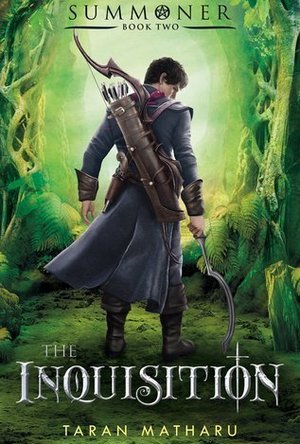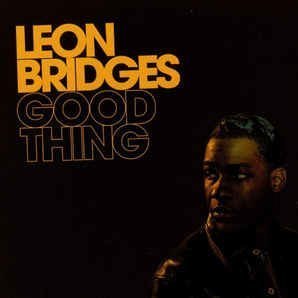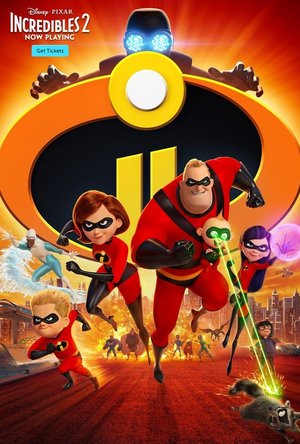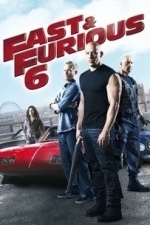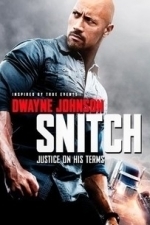Search
Search results
Kaysee Hood (83 KP) rated The Inquisition (Summoner, Book 2) in Books
May 1, 2018
Justice for Fletcher (3 more)
Past uncovered
Return of Othello, Sylva
Gremlins, Blue
It got better!
Once more I’m impressed with the Summoner books because even though I am late to the game on this series so the suspense of Fletcher’s fate was not as intense it was still thrilling to see how he would escape these false accusations and unfair trails. One can argue Fletcher has sort of put himself in this tight spot, but due to his actions in the previous book he has friends and teachers who stand by knowing there is more to what he is being accused of than what the other side would like to admit. Fletcher has become to center of a far bigger game because of who he is and the power he holds in his attempts to tie races together. Furthermore, without spoiling anything for anyone else, due to a charge which does threaten his life Fletcher is able to learn who he truly is, but he will always be Berdon’s son.
Despite the fact Fletcher was in imprisonment for a year he is game to accept a new mission that will aid Hominum in the war with the Orcs. He’s even willing to accept the challenge that comes with it to prove Elves and Dwarfs can work together in the hopes it will fix the strain on the Dwarven and Elven ties with Humans due to events that took place while he is in the hole. Results he does not doubt the Triumvirate had their hands in. All Fletcher and his friends have to do is go into Orc lands with three other teams to put an end to a Goblin breed.
It can never be easy for Fletcher.
Now, that’s all I really want to cover as important points in [i]The Inquisition[/i] because it should pull you in if my next words do not. To circle back I enjoyed the second book far more than [i]The Novice[/i] yet found a new appreciation for the first book as I realize now all the set up there is the reason the second summoner book is successful and was able to focus on the race issue a bit more
To circle back, my enjoyment of the second summoner book is due to the writing by Matharu because of how he set up [i]The Novice[/i] and there is more appreciation to be had for the first book of the series because it is after the second I realized how much had been done for [i]The Inquisition[/i] to be successful. It is within the first summoner book we’re introduced to key characters, plots (minor and major), lives of the characters, and the issues which will drive Fletcher in the second. If anything, [i]The Novice[/i] was an thick introduction to the events to come in [i]The Inquisition[/i]. So I would say be mindful if you’re thinking to begin the series of what occurs and how it will relate later.
However I want to say the character growth is still alive, for better or worse. We’re even given new characters and demons to grow fond of, or hate. Somehow 350+ pages were not enough and yet were perfect to convey where we needed to go then set up the points for the third book. And I have to say there are some twists in here I did not catch, which is nice for someone who had read so much and can predict so much to come. Even though there is some betrayal to me it was worth it as due to Fletcher’s nature we’re able to gain perspective from another race no one has probably given much thought to.
So, if you have yet to get into the Summoner Books then I suggest you go if you’re for fantasy and magic. If you’ve yet to pick up [i]The Inquisition[/i] then I have to say I have no clue what you are doing because I’m peeved at myself for not getting to it sooner. Honestly, it’s a good series to get lost in and yet think about real world issues we have today even if they’re painted a little bit different.
Despite the fact Fletcher was in imprisonment for a year he is game to accept a new mission that will aid Hominum in the war with the Orcs. He’s even willing to accept the challenge that comes with it to prove Elves and Dwarfs can work together in the hopes it will fix the strain on the Dwarven and Elven ties with Humans due to events that took place while he is in the hole. Results he does not doubt the Triumvirate had their hands in. All Fletcher and his friends have to do is go into Orc lands with three other teams to put an end to a Goblin breed.
It can never be easy for Fletcher.
Now, that’s all I really want to cover as important points in [i]The Inquisition[/i] because it should pull you in if my next words do not. To circle back I enjoyed the second book far more than [i]The Novice[/i] yet found a new appreciation for the first book as I realize now all the set up there is the reason the second summoner book is successful and was able to focus on the race issue a bit more
To circle back, my enjoyment of the second summoner book is due to the writing by Matharu because of how he set up [i]The Novice[/i] and there is more appreciation to be had for the first book of the series because it is after the second I realized how much had been done for [i]The Inquisition[/i] to be successful. It is within the first summoner book we’re introduced to key characters, plots (minor and major), lives of the characters, and the issues which will drive Fletcher in the second. If anything, [i]The Novice[/i] was an thick introduction to the events to come in [i]The Inquisition[/i]. So I would say be mindful if you’re thinking to begin the series of what occurs and how it will relate later.
However I want to say the character growth is still alive, for better or worse. We’re even given new characters and demons to grow fond of, or hate. Somehow 350+ pages were not enough and yet were perfect to convey where we needed to go then set up the points for the third book. And I have to say there are some twists in here I did not catch, which is nice for someone who had read so much and can predict so much to come. Even though there is some betrayal to me it was worth it as due to Fletcher’s nature we’re able to gain perspective from another race no one has probably given much thought to.
So, if you have yet to get into the Summoner Books then I suggest you go if you’re for fantasy and magic. If you’ve yet to pick up [i]The Inquisition[/i] then I have to say I have no clue what you are doing because I’m peeved at myself for not getting to it sooner. Honestly, it’s a good series to get lost in and yet think about real world issues we have today even if they’re painted a little bit different.
Bong Mines Entertainment (15 KP) rated Good Thing by Leon Bridges in Music
Jun 7, 2019
Leon Bridges is a talented R&B/soul singer outta Fort Worth, Texas. Not too long ago, he released his second studio album, entitled, “Good Thing”.
BET AIN’T WORTH THE HAND
The artist sings a beautiful ballad about leaving a rocky relationship. He doesn’t want to leave because he still sees hope in making it work.
The Natalie Rae-directed video begins with Bridges walking the street. He’s hurt. The following scenes show him relating to other people going through the same emotional pain he’s experiencing.
The artist knows that’s a risky move staying in a broken relationship. Also, he looks at the cards he’s dealt with and realizes his best is to move on.
BAD BAD NEWS
The artist switches speed and takes listeners on a funky ride. It’s disco time and he celebrates on the dancefloor. Also, being there isn’t easy. So, he has to fight his way through the crowd to make it to the front.
The Natalie Rae-directed video begins with a voluptuous woman walking inside a train station. She hears someone whistling so she heads in that direction, following the whistler.
Somehow, Bridges’ music overtakes her soul and she begins to follow its funky rhythm. In the end, it leads her to the guy who was whistling in the beginning.
The artist sings a triumphant song. He questions people trying to hold him in the back. But that’s not where he belongs. So, he moves up front and kills them with style and grace.
SHY
The artist addresses a shy woman that he’s in love with. Also, he assures her that it doesn’t matter if she’s shy. He doesn’t care about her shyness because he’s into her.
BEYOND
Bridges is deep in love with the shy woman. Everything is moving fast. Also, he wants to slow things down but he can’t. Because of that, he’s scared to death that she might be the one.
FORGIVE YOU
The artist sings the blues. He admits he played the fool in the relationship where his girl took advantage of his kindness. But he forgives her even though it’s hard to. Also, his friends warned him not to be so gullible.
LIONS
The aftermath of experiencing bad love has Bridges feeling like a thirsty lion. But through his trials and tribulations, he remains true to himself. Also, he refuses to conform to who the woman wants him to be.
IF IT FEELS GOOD (THEN IT MUST BE)
The artist removes the bad love aura and freshens the air with truth and honesty. Also, he perfumes the dancefloor with a splash of funkiness and rhythm and blues.
He wants the mysterious lady bad. So, he tells her to let her guards down and enjoy herself. He doesn’t want her to act so seriously.
YOU DON’T KNOW
The artist continues dancing in the name of love. He’s head over heels for the woman in his life and he wants the world to know that. Also, he wants her to stop thinking because their loving might not go down if she continues to do so.
MRS.
The artist addresses his love and hate relationship with his girl. When they’re good they’re good, but when they’re bad they’re really bad. Also, whenever she shows him affection, he remembers that she still loves him.
GEORGIA TO TEXAS
The artist sings about his mother carrying him in her womb, while his father drove them from Atlanta to Texas. But years later, he admits that adapting to his surrounding wasn’t easy.
Apparently, the 504 black girl is Bridges’ mother, Lisa Sawyer. The number 504 is the area code where she’s from in New Orleans, Lousiana.
CONCLUSION
Leon Bridges’ “Good Thing” is a classic album perfumed with soul ballads, spicy topics, and danceable tunes. Its soulful sound is the perfect soundtrack for those who have loved and lost, and those who are in love for the very first time. It’s romantic, celebratory, with lush experiences. Also, it takes listeners on an emotional journey through the hills and valleys where love dwells.
https://www.bongminesentertainment.com/leon-bridges-good-thing/
BET AIN’T WORTH THE HAND
The artist sings a beautiful ballad about leaving a rocky relationship. He doesn’t want to leave because he still sees hope in making it work.
The Natalie Rae-directed video begins with Bridges walking the street. He’s hurt. The following scenes show him relating to other people going through the same emotional pain he’s experiencing.
The artist knows that’s a risky move staying in a broken relationship. Also, he looks at the cards he’s dealt with and realizes his best is to move on.
BAD BAD NEWS
The artist switches speed and takes listeners on a funky ride. It’s disco time and he celebrates on the dancefloor. Also, being there isn’t easy. So, he has to fight his way through the crowd to make it to the front.
The Natalie Rae-directed video begins with a voluptuous woman walking inside a train station. She hears someone whistling so she heads in that direction, following the whistler.
Somehow, Bridges’ music overtakes her soul and she begins to follow its funky rhythm. In the end, it leads her to the guy who was whistling in the beginning.
The artist sings a triumphant song. He questions people trying to hold him in the back. But that’s not where he belongs. So, he moves up front and kills them with style and grace.
SHY
The artist addresses a shy woman that he’s in love with. Also, he assures her that it doesn’t matter if she’s shy. He doesn’t care about her shyness because he’s into her.
BEYOND
Bridges is deep in love with the shy woman. Everything is moving fast. Also, he wants to slow things down but he can’t. Because of that, he’s scared to death that she might be the one.
FORGIVE YOU
The artist sings the blues. He admits he played the fool in the relationship where his girl took advantage of his kindness. But he forgives her even though it’s hard to. Also, his friends warned him not to be so gullible.
LIONS
The aftermath of experiencing bad love has Bridges feeling like a thirsty lion. But through his trials and tribulations, he remains true to himself. Also, he refuses to conform to who the woman wants him to be.
IF IT FEELS GOOD (THEN IT MUST BE)
The artist removes the bad love aura and freshens the air with truth and honesty. Also, he perfumes the dancefloor with a splash of funkiness and rhythm and blues.
He wants the mysterious lady bad. So, he tells her to let her guards down and enjoy herself. He doesn’t want her to act so seriously.
YOU DON’T KNOW
The artist continues dancing in the name of love. He’s head over heels for the woman in his life and he wants the world to know that. Also, he wants her to stop thinking because their loving might not go down if she continues to do so.
MRS.
The artist addresses his love and hate relationship with his girl. When they’re good they’re good, but when they’re bad they’re really bad. Also, whenever she shows him affection, he remembers that she still loves him.
GEORGIA TO TEXAS
The artist sings about his mother carrying him in her womb, while his father drove them from Atlanta to Texas. But years later, he admits that adapting to his surrounding wasn’t easy.
Apparently, the 504 black girl is Bridges’ mother, Lisa Sawyer. The number 504 is the area code where she’s from in New Orleans, Lousiana.
CONCLUSION
Leon Bridges’ “Good Thing” is a classic album perfumed with soul ballads, spicy topics, and danceable tunes. Its soulful sound is the perfect soundtrack for those who have loved and lost, and those who are in love for the very first time. It’s romantic, celebratory, with lush experiences. Also, it takes listeners on an emotional journey through the hills and valleys where love dwells.
https://www.bongminesentertainment.com/leon-bridges-good-thing/
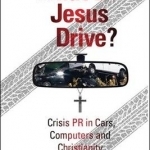
What Did Jesus Drive?: Crisis PR in Cars, Computers and Christianity
Book
What Did Jesus Drive, Is mostly about crises in the car industry, but then it's so much bigger! It's...
Phillip McSween (751 KP) rated The Incredibles 2 (2018) in Movies
Dec 11, 2018
On Par With the Best
If The Incredibles isn’t one of the top five superhero films of all time, it’s definitely top ten. For awhile, I had it billed as the greatest. It has everything you need which created a tough act to follow. But follow it they did fourteen years later with The Incredibles 2. The sequel continues the story of the superhero family and their dealings with being abnormal in a normal world.
Acting: 10
Beginning: 10
Characters: 10
Jack-Jack. Just…Jack-Jack. I could go into sophisticated detail about the depth of each of these characters and their internal struggles, but all you really need to know is Jack-Jack.
Cinematography/Visuals: 10
The animation in this movie is, for lack of a better word, incredible. Pixar seems to age like a fine wine, constantly improving upon themselves. Facial features are crisp, colors are vivid leaving the screen bursting with life. It operates just like a big budget superhero film and, in some ways, even better. Animation has a leg up because it allows you to always capture the desired moment at the perfect time. Watching the family work in tandem and seeing all their powers come together on screen is reminiscent of the first Avengers film.
Conflict: 10
No good battles arise without a good villain and Incredibles 2 doesn’t disappoint here. The movie is action-packed beset with high stakes. There are a handful of slow points where the film hiccups, but the fight sequences more than make up for it. Any scene with Dash in it and you never know what’s going to happen! He’s growing in his powers but still has yet to realize his own strength which makes him fun to watch.
Genre: 8
Doesn’t quite rank in the upper echelon of top superhero movies of 2018 (Black Panther, Avengers: Infinity War), but it’s not too far behind. It makes you feel, it makes you laugh, it makes you wow. Three things that make it a top choice for the year.
Memorability: 10
Jack-Jack Vs. The Raccoon is a scene I could watch a million times. Never gets old. The attention to detail in that scene and the way it unfolds is flawless. I also liked the fact that this movie seemed even darker than the first appealing more to adults at times than children. The first one toed the line, but the sequel jumped right over.
Pace: 8
As I mentioned earlier, there were some points in the movie where things got slow and you were waiting for it to pick back up. It didn’t happen often but definitely enough to be noticeable. Nothing that derailed the movie too much however as the action and hilarity more than made up for the slow points.
Plot: 8
Resolution: 10
Solid ending that ties the film up perfectly. It leaves you wanting more but, at the same time, if the series concluded here, I’d be good with it. No spoilers, but I’ll just say you’ll be satisfied.
Overall: 94
Incredibles 2 gets off to a fast start and doesn’t let you go. There is a scene with Edna and Jack-Jack that just makes me happy as hell and sums up my feeling for the whole movie experience. See it and love it.
Acting: 10
Beginning: 10
Characters: 10
Jack-Jack. Just…Jack-Jack. I could go into sophisticated detail about the depth of each of these characters and their internal struggles, but all you really need to know is Jack-Jack.
Cinematography/Visuals: 10
The animation in this movie is, for lack of a better word, incredible. Pixar seems to age like a fine wine, constantly improving upon themselves. Facial features are crisp, colors are vivid leaving the screen bursting with life. It operates just like a big budget superhero film and, in some ways, even better. Animation has a leg up because it allows you to always capture the desired moment at the perfect time. Watching the family work in tandem and seeing all their powers come together on screen is reminiscent of the first Avengers film.
Conflict: 10
No good battles arise without a good villain and Incredibles 2 doesn’t disappoint here. The movie is action-packed beset with high stakes. There are a handful of slow points where the film hiccups, but the fight sequences more than make up for it. Any scene with Dash in it and you never know what’s going to happen! He’s growing in his powers but still has yet to realize his own strength which makes him fun to watch.
Genre: 8
Doesn’t quite rank in the upper echelon of top superhero movies of 2018 (Black Panther, Avengers: Infinity War), but it’s not too far behind. It makes you feel, it makes you laugh, it makes you wow. Three things that make it a top choice for the year.
Memorability: 10
Jack-Jack Vs. The Raccoon is a scene I could watch a million times. Never gets old. The attention to detail in that scene and the way it unfolds is flawless. I also liked the fact that this movie seemed even darker than the first appealing more to adults at times than children. The first one toed the line, but the sequel jumped right over.
Pace: 8
As I mentioned earlier, there were some points in the movie where things got slow and you were waiting for it to pick back up. It didn’t happen often but definitely enough to be noticeable. Nothing that derailed the movie too much however as the action and hilarity more than made up for the slow points.
Plot: 8
Resolution: 10
Solid ending that ties the film up perfectly. It leaves you wanting more but, at the same time, if the series concluded here, I’d be good with it. No spoilers, but I’ll just say you’ll be satisfied.
Overall: 94
Incredibles 2 gets off to a fast start and doesn’t let you go. There is a scene with Edna and Jack-Jack that just makes me happy as hell and sums up my feeling for the whole movie experience. See it and love it.
Sophia (Bookwyrming Thoughts) (530 KP) rated A Faerie's Secret (Creepy Hollow, #4) in Books
Jan 23, 2020
<b><i>I received this book for free from Author in exchange for an honest review. This does not affect my opinion of the book or the content of my review.</i></b>
The fourth novel to the <i>Creepy Hollow</i> series pretty much made me realize that <b>there were actually some loose ends left untied in the third book</b> I'm not sure if I mentioned it felt like an almost abrupt ending (I probably did).
Anyways, <i>A Faerie's Secret</i> is <b>set approximately ten years after the events in <i><a title="The Faerie War by Rachel Morgan" href="https://bookwyrmingthoughts.com/review-the-faerie-war-by-rachel-morgan/"; target="_blank" rel="noopener">The Faerie War</a></i></b>. Rachel introduces us to a <b>new main character Calla Larkenwood, Ryn's little sister</b> who made a few appearances in the first three novels when Violet is the main character.
<b>Calla is definitely different from Violet she's just as kick-ass, adorable, and doesn't actually follow orders from others.</b> She's a bit bratty sometimes (within reason) and a seemingly hopeless romantic who longs for companionship. She <b>desires to be a guardian and actually trains in private</b> before something happens and her parents approve of her joining a guild. She <b>gets a crash course of all four years in a month</b> before starting as a fifth-year guardian, where a lot of her peers and her mentor believe she doesn't belong. She's <b>determined to prove everyone wrong and show that she definitely belongs with the guild.</b>
Rachel seems to have focused more on giving the series more action, which doesn't really work out too well. <b>There's an entirely different faerie world that we are introduced to, and it's different from <a title="The Faerie Prince by Rachel Morgan" href="https://bookwyrmingthoughts.com/review-the-faerie-prince-by-rachel-morgan/"; target="_blank" rel="noopener">when Violet was a guardian</a></b> not just with time, but with everything that happened in the third book. The <b>author does a pretty good job with easing us into the new guild,</b> but I'm a little curious on what the new guild looks like now that everything seems to be nice and dandy.
<b>I have very little idea on what the past characters are up to a decade later.</b> I'm very up to date with what happened to Ryn and some of the characters, but I don't really know what happened to Violet, Raven, and Flint. <b>There's some cryptic dialogue that tells me something, but it's not sure.</b> (It's not exactly safe to assume.) I know they survived, and they're still good friends. I don't know if they retired from the guardian life and pursued another career or something else entirely.
I may have enjoyed <i>A Faerie's Secret</i> more than the last two books <b>there are more dangers and adventures with Calla as our new heroine.</b> I don't really know what will happen in the next book <b>I'm left with an open ending where I have some questions that I hope to be answered in the sequel.</b>
<a href="https://bookwyrmingthoughts.com/review-a-faeries-secret-by-rachel-morgan/"; target="_blank">This review was originally posted on Bookwyrming Thoughts</a>
The fourth novel to the <i>Creepy Hollow</i> series pretty much made me realize that <b>there were actually some loose ends left untied in the third book</b> I'm not sure if I mentioned it felt like an almost abrupt ending (I probably did).
Anyways, <i>A Faerie's Secret</i> is <b>set approximately ten years after the events in <i><a title="The Faerie War by Rachel Morgan" href="https://bookwyrmingthoughts.com/review-the-faerie-war-by-rachel-morgan/"; target="_blank" rel="noopener">The Faerie War</a></i></b>. Rachel introduces us to a <b>new main character Calla Larkenwood, Ryn's little sister</b> who made a few appearances in the first three novels when Violet is the main character.
<b>Calla is definitely different from Violet she's just as kick-ass, adorable, and doesn't actually follow orders from others.</b> She's a bit bratty sometimes (within reason) and a seemingly hopeless romantic who longs for companionship. She <b>desires to be a guardian and actually trains in private</b> before something happens and her parents approve of her joining a guild. She <b>gets a crash course of all four years in a month</b> before starting as a fifth-year guardian, where a lot of her peers and her mentor believe she doesn't belong. She's <b>determined to prove everyone wrong and show that she definitely belongs with the guild.</b>
Rachel seems to have focused more on giving the series more action, which doesn't really work out too well. <b>There's an entirely different faerie world that we are introduced to, and it's different from <a title="The Faerie Prince by Rachel Morgan" href="https://bookwyrmingthoughts.com/review-the-faerie-prince-by-rachel-morgan/"; target="_blank" rel="noopener">when Violet was a guardian</a></b> not just with time, but with everything that happened in the third book. The <b>author does a pretty good job with easing us into the new guild,</b> but I'm a little curious on what the new guild looks like now that everything seems to be nice and dandy.
<b>I have very little idea on what the past characters are up to a decade later.</b> I'm very up to date with what happened to Ryn and some of the characters, but I don't really know what happened to Violet, Raven, and Flint. <b>There's some cryptic dialogue that tells me something, but it's not sure.</b> (It's not exactly safe to assume.) I know they survived, and they're still good friends. I don't know if they retired from the guardian life and pursued another career or something else entirely.
I may have enjoyed <i>A Faerie's Secret</i> more than the last two books <b>there are more dangers and adventures with Calla as our new heroine.</b> I don't really know what will happen in the next book <b>I'm left with an open ending where I have some questions that I hope to be answered in the sequel.</b>
<a href="https://bookwyrmingthoughts.com/review-a-faeries-secret-by-rachel-morgan/"; target="_blank">This review was originally posted on Bookwyrming Thoughts</a>
JT (287 KP) rated Fast & Furious 6 (2013) in Movies
Mar 10, 2020
I've been a fan of this franchise since the very first film, and while Tokyo Drift might have been a little blip, or bump in the road, there is no denying that the films have delivered box office success. Fast and Furious 6 is the second film to be left on a cliffhanger (we’ll get to that later) and delves deep into the story of the mystery surrounding Letty’s (Michelle Rodriguez) death a few films ago. I don’t regard that as a plot spoiler as it’s in the trailer. Having demolished most of Rio and now living peacefully in a country with no extradition Dom and new dad Brian think that they have put all their troubles behind them.
After the opening credits montage, agent Hobbs (Johnson) comes knocking. His offer requires all the team converge once again, this time they have to track down and capture a ruthless mercenary called Owen Shaw (Luke Evans). Hobbs and Toretto have to stand side by side working together to take down the villain. Letty of course has returned and is working for the bad guys but has no memory of her past life. If you’re a true fan then the plot will reveal more back story and as it turns out part six is practically a sequel to part four with past villains announcing a few home truths.
The film and action is set in the heart of London which, includes a car chase that defies belief, a ménage à trois of fist fights on the underground, shoot outs and a drag race that drifts through Piccadilly Circus. The action is pulsating and over the top but you shouldn’t care in the least about that. What were you expecting the film to do? Each vehicular sequence is more mind bending than the next.
Take the opening chase for example. A modified F1 style car pursued by Toretto and his crew as well as local police weaves its way through the streets with the ability to flip oncoming cars. Justin Lin who directed the last four films is well in control and more than happy to up the action.
Fast and Furious 6 is guilty of plot holes, but these will only be deconstructed by people who have nothing better to do. That said, even I was left wondering what distance the longest runway in the world was? There is a good level of humour with Tyrese Gibson’s Roman providing much of the light heartedness that the film needed. Let’s face it The Avengers had the same level of action and humour mixed and that seemed to work.
One of the dangers for this was having a cast that was pretty extensive, regrouping the team meant that there was jostling for position. But on the whole everyone has their time to shine and no one is really cast to the shadows. Evans does a good job as the main antagonist and Gina Carano also proves her worth after the abject Haywire a few years back.
Fast and Furious 7 takes place back in LA after the events of this film and has a teasing post credit sequence that will bait those fans to come back once again. James Wan steps into the directors chair for the seventh film switching from the comfort of the horror genre. I found Fast and Furious 6 to be a highly entertaining film, and you’ll need to check your brain in at the door. To quote a cliché it ‘does what it says on the tin’, and doesn’t take itself too seriously.
After the opening credits montage, agent Hobbs (Johnson) comes knocking. His offer requires all the team converge once again, this time they have to track down and capture a ruthless mercenary called Owen Shaw (Luke Evans). Hobbs and Toretto have to stand side by side working together to take down the villain. Letty of course has returned and is working for the bad guys but has no memory of her past life. If you’re a true fan then the plot will reveal more back story and as it turns out part six is practically a sequel to part four with past villains announcing a few home truths.
The film and action is set in the heart of London which, includes a car chase that defies belief, a ménage à trois of fist fights on the underground, shoot outs and a drag race that drifts through Piccadilly Circus. The action is pulsating and over the top but you shouldn’t care in the least about that. What were you expecting the film to do? Each vehicular sequence is more mind bending than the next.
Take the opening chase for example. A modified F1 style car pursued by Toretto and his crew as well as local police weaves its way through the streets with the ability to flip oncoming cars. Justin Lin who directed the last four films is well in control and more than happy to up the action.
Fast and Furious 6 is guilty of plot holes, but these will only be deconstructed by people who have nothing better to do. That said, even I was left wondering what distance the longest runway in the world was? There is a good level of humour with Tyrese Gibson’s Roman providing much of the light heartedness that the film needed. Let’s face it The Avengers had the same level of action and humour mixed and that seemed to work.
One of the dangers for this was having a cast that was pretty extensive, regrouping the team meant that there was jostling for position. But on the whole everyone has their time to shine and no one is really cast to the shadows. Evans does a good job as the main antagonist and Gina Carano also proves her worth after the abject Haywire a few years back.
Fast and Furious 7 takes place back in LA after the events of this film and has a teasing post credit sequence that will bait those fans to come back once again. James Wan steps into the directors chair for the seventh film switching from the comfort of the horror genre. I found Fast and Furious 6 to be a highly entertaining film, and you’ll need to check your brain in at the door. To quote a cliché it ‘does what it says on the tin’, and doesn’t take itself too seriously.
Gareth von Kallenbach (980 KP) rated Snitch (2013) in Movies
Aug 7, 2019
I’m a huge fan of Dwayne “The Rock” Johnson. His wrestling persona is
extremely entertaining and he’s a pretty decent actor. He did good with this movie but it wasn’t enough.
The premise of the movie is based on ‘true events’ (whatever that
means), it’s more about a law that’s real in our country right now, I’ll get in to that later.
There are a lot of characters so stick with me. The Rock plays John
Matthews, he owns his own construction business. He has an ex-wife, Sylvie Collins played by Melina Kanakaredes, and a current wife, Analisa played by Nadine Velazquez.
Johnand Analisa
have a daughter Isabella and he has a son with Sylvie, Jason Collins played by Rafi Gavron. The other major players are Barry Pepper who plays undercover DEA agent Cooper; Susan Sarandon who plays Joanne Keeghan a US Attorney; Jon Bernthal
who plays Daniel James an ex-con trying to get his life back together; Michael Kenneth Williams who plays Malik, a drug dealer; and Benjamin Bratt who plays Cartel leader Juan Carlos. Out of all of these, I liked Daniel, Agent Cooper, John Matthews, Malik and
Joanne Keeghan, in that order.
The law the movie is based on is about mandatory minimums. If you are
holding and it’s enough to distribute then you go to jail. The length of your jail time is based on how
much you are holding when you’re caught. In this case, Jason, who is 18 and still in high
school, is set up by his ‘best friend’. This friend sends him a huge bag of ecstasy against Jason’s wishes.
When the package arrives Jason gets caught because it’s a
sting. His jail time based on the amount of ecstasy is ten years in a prison that holds murderers, rapist and violent criminals.
The movie starts excruciatingly slow, the real action doesn’t start until
almost halfway through, or at least it felt like it. It’s good once you get there but I wasn’t really into
the people in it/living it. I kept thinking of the actors as themselves not the characters
they were playing, even the ones I liked. There were too many close ups and‘in action’ scenes that involved someone with a camera running or walking next to the actor.
I getthat it was to try and build apprehension and anxiety but it was more annoying and kept pulling me out of the story so I couldn’t connect emotionally with the characters.
I didn’t believe the union between John and Analisa or that there had been one with Sylvie, there was no familiarity and I didn’t believe the love or tension between them.
John was a business man who’s never seen action so he’s kind of a wuss, but it’s the Rock, a huge tall muscle-y intense looking guy. Whenever he flinched I kept waiting for him to kick ass but he never does.
Then in another scene he’s magically badass, shooting
a shotgun one handed out of the window of a semi-truck he’s driving.
The movie was more about showing people this heinous law then entertainingus. I don’t like that, it’s not why I go to movies. The only saving grace would have been if it had been really entertaining but it was only mildly entertaining at best.
I’d say rent it if you like the Rock or if you’re curious, it wouldn’t be too much of a waste of your time but
definitely don’t waste your money in a theatre.
extremely entertaining and he’s a pretty decent actor. He did good with this movie but it wasn’t enough.
The premise of the movie is based on ‘true events’ (whatever that
means), it’s more about a law that’s real in our country right now, I’ll get in to that later.
There are a lot of characters so stick with me. The Rock plays John
Matthews, he owns his own construction business. He has an ex-wife, Sylvie Collins played by Melina Kanakaredes, and a current wife, Analisa played by Nadine Velazquez.
Johnand Analisa
have a daughter Isabella and he has a son with Sylvie, Jason Collins played by Rafi Gavron. The other major players are Barry Pepper who plays undercover DEA agent Cooper; Susan Sarandon who plays Joanne Keeghan a US Attorney; Jon Bernthal
who plays Daniel James an ex-con trying to get his life back together; Michael Kenneth Williams who plays Malik, a drug dealer; and Benjamin Bratt who plays Cartel leader Juan Carlos. Out of all of these, I liked Daniel, Agent Cooper, John Matthews, Malik and
Joanne Keeghan, in that order.
The law the movie is based on is about mandatory minimums. If you are
holding and it’s enough to distribute then you go to jail. The length of your jail time is based on how
much you are holding when you’re caught. In this case, Jason, who is 18 and still in high
school, is set up by his ‘best friend’. This friend sends him a huge bag of ecstasy against Jason’s wishes.
When the package arrives Jason gets caught because it’s a
sting. His jail time based on the amount of ecstasy is ten years in a prison that holds murderers, rapist and violent criminals.
The movie starts excruciatingly slow, the real action doesn’t start until
almost halfway through, or at least it felt like it. It’s good once you get there but I wasn’t really into
the people in it/living it. I kept thinking of the actors as themselves not the characters
they were playing, even the ones I liked. There were too many close ups and‘in action’ scenes that involved someone with a camera running or walking next to the actor.
I getthat it was to try and build apprehension and anxiety but it was more annoying and kept pulling me out of the story so I couldn’t connect emotionally with the characters.
I didn’t believe the union between John and Analisa or that there had been one with Sylvie, there was no familiarity and I didn’t believe the love or tension between them.
John was a business man who’s never seen action so he’s kind of a wuss, but it’s the Rock, a huge tall muscle-y intense looking guy. Whenever he flinched I kept waiting for him to kick ass but he never does.
Then in another scene he’s magically badass, shooting
a shotgun one handed out of the window of a semi-truck he’s driving.
The movie was more about showing people this heinous law then entertainingus. I don’t like that, it’s not why I go to movies. The only saving grace would have been if it had been really entertaining but it was only mildly entertaining at best.
I’d say rent it if you like the Rock or if you’re curious, it wouldn’t be too much of a waste of your time but
definitely don’t waste your money in a theatre.

BattleSteps - An Epic Fitness Game
Health & Fitness, Games and Stickers
App
Life's more fun when you defeat someone :). BattleSteps turns walking into an engaging and...
Natasha Khan recommended Selected Ambient Works 85-92 by Aphex Twin in Music (curated)

Choices: Stories You Play
Entertainment and Games
App
One choice can change everything! Fall in love, solve crimes, or embark on epic fantasy adventures...
